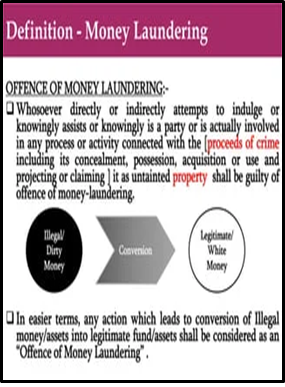SC LIMITS ED’S ARREST POWERS, EASES BAIL CONDITIONS FOR PMLA ACCUSED
Why in the news?
- The Supreme Court ruling limits the Enforcement Directorate’s (ED) power to arrest under the PMLA, impacting bail conditions for accused individuals.
- The judgement clarifies the procedural requirements for ED’s custody applications and future investigations.
source:Livelaw
About Enforcement Directorate (ED):
- Role: Domestic law enforcement and economic intelligence agency.
- Objective: Enforce economic laws and combat economic crimes in India.
- Origin: Formed in May 1956 as an “enforcement unit” for Exchange Control Laws violations.
- Renaming: Became the Enforcement Directorate in 1957.
- Nodal Ministry: Department of Revenue, Ministry of Finance.
- Headquarters: New Delhi, led by the Director of Enforcement.
- Regional Offices: Five, located in Mumbai, Chennai, Chandigarh, Kolkata, and Delhi, each headed by a Special Director of Enforcement.
Key Acts Enforced
- Foreign Exchange Management Act, 1999 (FEMA)
- Prevention of Money Laundering Act, 2002 (PMLA)
- Fugitive Economic Offenders Act, 2018 (FEOA)
| Prevention of Money Laundering Act (PMLA), 2002:
● Aims to prevent money laundering and confiscate related property. ● Establishes an adjudicating authority and appellate tribunal for money laundering cases. ● The Enforcement Directorate (ED) investigates PMLA offences, while the Financial Intelligence Unit–India (FIU-IND) handles suspicious financial transactions. ● Scheduled offences are investigated by relevant agencies like police, CBI, customs, or SEBI. ● Actions include property seizure/freezing, imprisonment up to 7 years, and unlimited fines. Conditions for Bail in Money Laundering Cases (Section 45 of PMLA): (Section 45 of PMLA): ● Prima Facie Satisfaction:Required to establish that the accused did not commit the offence. ● No Likelihood of Further Offence:Bail granted only if there’s assurance the accused won’t commit any offence while released. About Section 19 (Power of Arrest): ● Section 19 (Power of Arrest): Decide on arrests based on search and seizure findings. Associated Article: https://universalinstitutions.com/the-pmla-a-law-that-has-lost-its-way/ |




